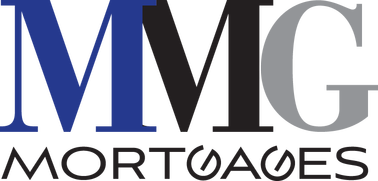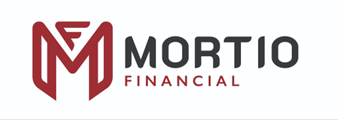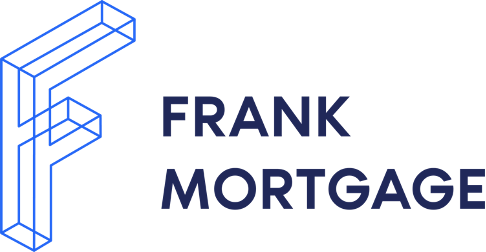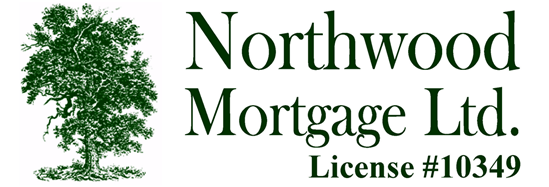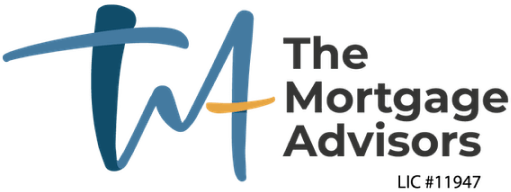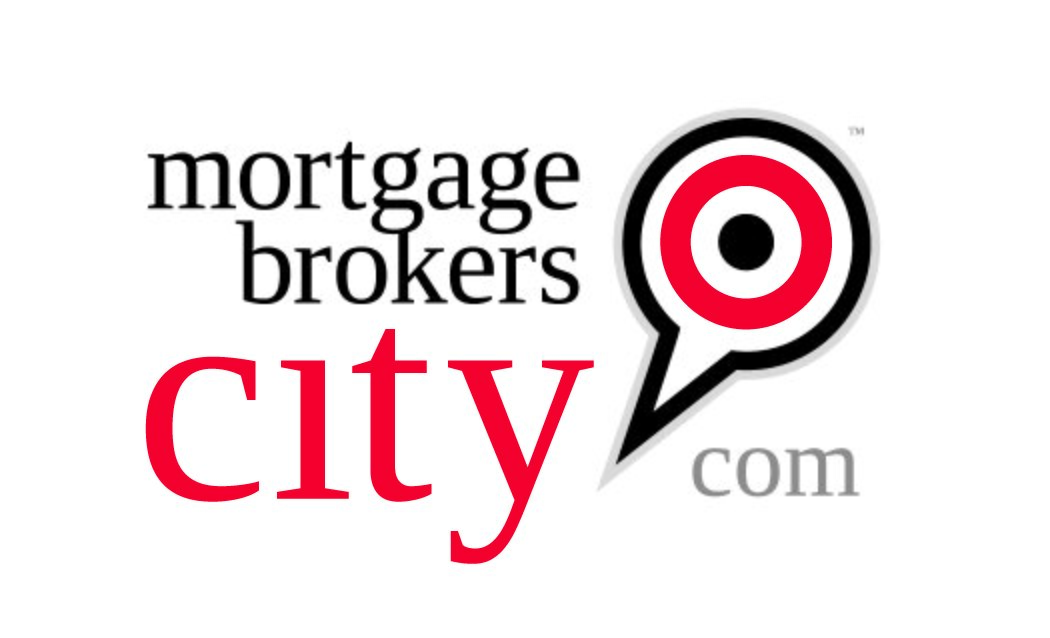Find the Best 3-Year Fixed Mortgage Rates in Canada
Compare the most current 3-year fixed rates from major banks, credit unions and mortgage brokers.
Compare 3-year fixed mortgage rates from lenders across Canada



*Rates are based on a $300,000 mortgage.
*Rates are based on a $300,000 mortgage.
*Rates are based on a $300,000 mortgage.
Today's Best Mortgage Rates in Canada
Evaluate Canada's best 3-year fixed mortgage rates in one place. RATESDOTCAs Rate Matrix lets you compare pricing for all key mortgage types and terms.
Rates are based on an average mortgage of $500,000 and subject to change based on filter criteria.
Updated 07:29 on Jul 22, 2025| Placeholder |
Insured
The rates in this column apply to borrowers who have purchased mortgage default insurance.
This is required when you purchase a home with less than a 20% down payment.
The home must be owner-occupied and the amortization must be 25 years or less.
|
80% LTV
The rates in this column apply to mortgage amounts between 65.01% and 80% of the property value. The home must be owner-occupied and have an amortization of 25 years or less. You must have purchased it for less than $1 million. These rates are not available on refinances. Refinances require "Uninsured" rates.
|
65% LTV
The rates in this column apply to mortgage amounts that are 65% of the property value or less. The home must be owner-occupied and have an amortization of 25 years or less. You must have purchased it for less than $1 million. These rates are not available on refinances. Refinances require "Uninsured" rates.
|
Uninsured
The rates in this column apply to purchases over $1 million, refinances and amortizations over 25 years. More info on the differences between insured and uninsured rates.
|
Bank Rate
Bank Rate is the mortgage interest rate posted by the big banks in Canada.
|
|---|---|---|---|---|---|
| 1-year fixed rate | 4.99% | 4.79% | 4.79% | 5.59% |
5.49%
|
| 2-years fixed rate | 4.04% | 4.34% | 4.34% | 4.54% |
4.79%
|
| 3-years fixed rate | 3.87% | 4.09% | 4.09% | 4.24% |
4.29%
|
| 4-years fixed rate | 4.09% | 4.15% | 4.15% | 4.44% |
4.39%
|
| 5-years fixed rate | 3.91% | 3.89% | 3.89% | 3.91% |
4.09%
|
| 7-years fixed rate | 5.19% | 5.00% | 5.00% | 5.19% |
5.00%
|
| 10-years fixed rate | 5.24% | 5.24% | 5.24% | 5.29% |
6.09%
|
| 3-years variable rate | 4.40% | 4.30% | 4.30% | 4.40% |
6.35%
|
| 5-years variable rate | 4.04% | 4.04% | 4.04% | 4.05% |
4.25%
|
| HELOC rate | N/A | N/A | N/A | N/A |
N/A
|
| Stress Test | 5.25% | 5.25% | 5.25% | 5.25% |
N/A
|
Today's Best Mortgage Rates in Canada
Evaluate Canada’s best mortgage rates in one place. You can compare the most current mortgage rates and monthly payments from 175+ banks and lenders across Canada.
Rates are based on an average mortgage of $500,000 and subject to change based on filter criteria.
| Lender
|
Insured
|
Insurable
|
Uninsured
|
|---|---|---|---|
|
MMG Mortgages
|
3.99%
$2,627.39 / month
|
4.19%
$2,681.85 / month
|
4.14%
$2,668.19 / month
|
|
Mortio Financial Corp
|
3.99%
$2,627.39 / month
|
4.24%
$2,695.56 / month
|
4.14%
$2,668.19 / month
|
|
Frank Mortgage
|
4.09%
$2,654.55 / month
|
4.19%
$2,681.85 / month
|
4.09%
$2,654.55 / month
|
|
Northwood Mortgage Ltd.
|
4.14%
$2,668.19 / month
|
4.24%
$2,695.56 / month
|
4.24%
$2,695.56 / month
|
|
Innovation Federal Credit Union
|
4.39%
$2,736.87 / month
|
4.39%
$2,736.87 / month
|
4.39%
$2,736.87 / month
|
|
True North Mortgage
|
2.99%
$2,363.66 / month
|
2.99%
$2,363.66 / month
|
2.99%
$2,363.66 / month
|
|
The Mortgage Advisors
|
3.87%
$2,594.98 / month
|
3.87%
$2,594.98 / month
|
3.87%
$2,594.98 / month
|
|
Nesto
|
3.91%
$2,605.76 / month
|
3.91%
$2,605.76 / month
|
3.91%
$2,605.76 / month
|
|
Hypotheca
|
3.94%
$2,613.86 / month
|
3.94%
$2,613.86 / month
|
3.94%
$2,613.86 / month
|
|
MortgagestoGo
|
3.94%
$2,613.86 / month
|
3.94%
$2,613.86 / month
|
3.94%
$2,613.86 / month
|
|
One Link Mortgage & Financial
|
3.95%
$2,616.57 / month
|
3.95%
$2,616.57 / month
|
3.95%
$2,616.57 / month
|
|
Mainstreet Credit Union
|
3.99%
$2,627.39 / month
|
3.99%
$2,627.39 / month
|
3.99%
$2,627.39 / month
|
|
Monster Mortgage
|
3.99%
$2,627.39 / month
|
3.99%
$2,627.39 / month
|
3.99%
$2,627.39 / month
|
|
Sudbury Credit Union
|
3.99%
$2,627.39 / month
|
3.99%
$2,627.39 / month
|
3.99%
$2,627.39 / month
|
|
The Police Credit Union
|
3.99%
$2,627.39 / month
|
3.99%
$2,627.39 / month
|
3.99%
$2,627.39 / month
|
|
City Wide Financial Corp
|
3.99%
$2,627.39 / month
|
3.99%
$2,627.39 / month
|
3.99%
$2,627.39 / month
|
|
Northern Birch Credit Union
|
3.99%
$2,627.39 / month
|
3.99%
$2,627.39 / month
|
3.99%
$2,627.39 / month
|
|
East Coast Mortgage Brokers
|
4%
$2,630.10 / month
|
4%
$2,630.10 / month
|
4%
$2,630.10 / month
|
|
Mortgage Brokers City Inc
|
4.04%
$2,640.95 / month
|
4.04%
$2,640.95 / month
|
4.04%
$2,640.95 / month
|
Jump straight to:
- What is a 3-year fixed mortgage rate?
- What causes changes in 3-year fixed rates?
- 3-year Canadian bond yields vs 3-year conventional mortgage rates
- Why are 3-year fixed rates so popular in Canada?
- Pros and cons of 3-year fixed mortgage
- 3-year fixed mortgage rates prediction
- History of 3-year fixed mortgage rates
- 3-year fixed mortgage tips
- Frequently asked questions about 3-year fixed rate mortgages
What is a 3-year fixed mortgage rate?
A three-year fixed mortgage rate is a fixed mortgage rate sought by a borrower for a period of three years. The term of a mortgage is the length of time a financial lender will loan mortgage amount to a homebuyer. The two-to-five-year term period is the most common among borrowers in Canada. A borrower might take a longer time to completely pay off the mortgage – usually 15 to 25 years. It is simply the time period within which the fixed mortgage rate will be valid for the borrower. At the end of three years, the borrower could either pay off the entire amount remaining or renew their mortgage rate with their existing lender or a new mortgage provider depending on the market situation and mortgage rates.
Unlike a variable rate, in which the percentage of interest may vary according to the market situation, a fixed mortgage rate locks in the rate as per the existing economic situation. In the case of a 3-year fixed mortgage rate, the rate is locked in for a period of three-years, at the end of which, the borrower will have to assess their financial situation and seek renewal.
What causes changes in 3-year fixed rates?
In the current economic situation, Canadians are faced with the rising interest rates, inflation and a global economic downturn.
Starting in March 2022, the Bank of Canada has raised the policy interest rate quickly and consistently — from 0.25% to 4.5%. This has resulted in borrowing rates going up for households and businesses, spending has declined, especially on housing.
The Bank of Canada’s overnight rate increase can have a significant impact on the yield of a 3-year bond. A higher overnight rate leads to increase in interest rates across the economy, including the yield on 3-year bonds.
When the Bank of Canada raises its overnight rate, the cost of borrowing for banks and other financial institutions generally increases. As a result, the yields on short-term bonds, including 3-year bonds, tend to rise as well. Conversely, when the Bank of Canada lowers its overnight rate, the cost of borrowing decreases and the yields on short-term bonds, including 3-year bonds, tend to fall.
In January this year, the Bank of Canada said it expects to pause rate hikes but this pause is conditional and depends upon whether the economy develops as per economists’ predictions and whether inflation continues to fall. With economic growth slowing to close to zero in the first half of 2023, inflation should drop to around 3% in the middle of the year and reach the Bank’s 2% target in 2024.
3-year Canadian bond yields vs 3-year conventional mortgage rates
The changes in 3-year bond yields could have an impact on the 3-year fixed mortgage rates but not always. The 3-year bond yield is a valuable indicator of the market's expectations for future interest rates, and changes in bond yields can impact the cost of borrowing for banks and other financial institutions.
When the 3-year bond yield increases, this can indicate that market participants expect interest rates to rise in the future, which can lead financial institutions to adjust their lending rates, including the rates for 3-year fixed mortgages. An increase in 3-year bond yields can result in a higher 3-year fixed mortgage rate.
On the other hand, if 3-year bond yields decrease, this suggests market participants expect interest rates to remain low or decline in the future, which can lead to lower borrowing costs for financial institutions and potentially lower 3-year fixed mortgage rates.
There are many factors that can impact both 3-year bond yields and 3-year fixed mortgage rates, including inflation expectations, economic growth, and government monetary policy. Moreover, the relationship between bond yields and mortgage rates can be complex and may not always be straightforward.
| Date | 3-year conventional mortgage (in %) | 3-year bond yields (in %) |
|---|---|---|
| January 5, 2022 | 3.49 | 1.12 |
| March 30, 2022 | 3.69 | 2.31 |
| April 6, 2022 | 3.89 | 2.4 |
| April 27, 2022 | 4.09 | 2.55 |
| May 11, 2022 | 4.39 | 2.74 |
| May 25, 2022 | 4.49 | 2.54 |
| June 15, 2022 | 4.89 | 3.28 |
| June 22, 2022 | 5.24 | 3.29 |
| June 29, 2022 | 5.39 | 3.18 |
| July 27, 2022 | 5.64 | 3 |
| September 28, 2022 | 5.74 | 3.68 |
| October 5, 2022 | 6.04 | 3.8 |
| November 30, 2022 | 6.14 | 3.64 |
| December 7, 2022 | 6.05 | 3.48 |
| December 14, 2022 | 6.14 | 3.44 |
Why are 3-year fixed rates so popular in Canada?
Yes, the 3-year fixed mortgage rate is a popular choice for homeowners and borrowers in Canada. This type of mortgage offers the security of a fixed interest rate for a period of three years, which can provide borrowers with peace of mind and stability when it comes to their monthly mortgage payments unlike a variable mortgage rate.
The 3-year fixed rate is a good choice for borrowers who value the certainty of a fixed monthly payment, and who are comfortable with the idea of renewing or refinancing their mortgage after three years. This type of mortgage is also good for borrowers who are planning to stay in their home for a short to medium-term period, as the 3-year term is a good balance between the stability of a fixed rate and the flexibility of a shorter term.
While the 3-year fixed mortgage rate is popular in Canada, it's important for borrowers to shop around and compare rates from multiple lenders to ensure they're getting the best deal for their specific needs and financial situation.
Pros and cons of 3-year fixed mortgage
Here some of the advantages of a 3-year fixed:
- Lower rates compared to longer terms: Three-year fixed mortgages typically offer lower rates compared to longer terms, such as the 5-year fixed, Canada’s most popular mortgage. The spread between the two can generally run from 20-40 bps in normal rate environments.
- A good compromise between low rates and rate protection: The 3-year fixed provides borrowers with a balance between the interest rate savings of a shorter term and multi-year protection against rate increases.
- Less chance of paying mortgage breakage penalties: A 3-year mortgage contract is the longest of what are considered short mortgage terms. Shorter mortgage terms generally mean less chance that the borrower will need to break the mortgage prior to maturity. Consider that most borrowers break their 5-year mortgage after just 3.8 years on average. Locking into a shorter mortgage contract means less risk of being charged exorbitant prepayment penalties, which are often the case with fixed-rate mortgages, particularly those offered by the Big 6 banks.
- Refinance flexibility: A 3-year fixed offers greater flexibility for those needing to refinance their mortgage without limitation or penalty. After 36 months, you can freely switch lenders for a better deal if your existing lender refuses to play ball.
Cons of a 3-year fixed mortgage
The following are some potential drawbacks of choosing a 3-year fixed mortgage:
- Less protection against rate hikes: A 3-year fixed term increases your odds of renewing into a higher rate – at least compared to a longer term like a 5-year fixed.
- Fixed rates can have higher penalties: If you’re considering the 3-year fixed term as an alternative to a variable, keep in mind that penalties for breaking a fixed mortgage are often significantly higher. Terminating a fixed-rate early usually means you’ll pay a penalty based on the higher of three months’ interest, or the Interest Rate Differential (IRD), a formula that compares your original interest rate to the rate a lender could re-lend the funds at today. IRDs often run into four or even five-digit dollar amounts. Breaking a variable, or “floating” rate, on the other hand, usually involves a penalty of just three months’ interest.
- Increased renewal frequency: Some borrowers don’t care about this but renewals can be a hassle when your lender isn’t competitive. Compared to a 5-year term, a 3-year requires more frequent paperwork, rate research and renegotiation.
Predicting 3-year fixed mortgage rates
If you want to try and predict where 3-year fixed rates are headed, we don’t recommend that. But if you want to try anyhow, look to Canada’s 3-year government bond yield.
The 3-year bond yield won’t tell you exactly where 3-year rates are heading, but they do provide a good roadmap near-term. If yields show a sustained upward trend, for example, chances are good that 3-year fixed rates will start trending higher as well.
History of 3-year fixed mortgage rates
In the past decade, 3-year fixed rate mortgages have remained stable, typically ranging between 2% and 3%. In September 2020, borrowers could even find nationally available uninsured 3-year fixed rates for under the 2% mark. However, with the Bank of Canada’s rate hike spree starting March 2022, 3-year fixed rates have risen historically, and even hovered around the 5-year fixed rate mortgage between 4% and 5%. At the time of the Financial Crisis back in 2008-2009, discounted 3-year fixed rates surpassed 6% before trending downward in the following years.
In a nutshell, three-year fixed rates have generally:
- moved in tandem with other fixed-term rates in the past decade,
- generally been higher than 1-year rates but lower than comparable 5-year fixed rates.
- in 2020, however, the spread between 3- and 5-year fixed rates narrowed and even inverted, meaning you could find 5-year rates for less than similar 3-year terms.
- In 2023, the uninsured 3-year fixed rate is slightly higher than the 5-year fixed rate, but lower than 1-year, 2-year and 4-year fixed rates.
3-year fixed mortgage tips
- About 1 in 14 borrowers (7%) select 3-year mortgages, according to Mortgage Professionals Canada.
- Those applying for a default insured 3-year fixed mortgage typically need to prove they can afford payments based on the posted 5-year fixed rate, also known as the “benchmark rate” or “stress test rate.”
- Those applying for an uninsured 3-year must prove they can afford the greater of the posted 5-year fixed rate set by the Bank of Canada or the contract rate plus two percentage points.
- There are some exemptions for those getting their mortgage through a credit union or other non-federally regulated lender.
- Unlike most 1- and 2-year fixed rates, many lenders pay the legal and appraisal fees if you’re switching into 3-year terms and longer (except if you have a collateral charge mortgage or a mortgage linked to a line of credit).
Frequently asked questions about 3-year fixed rate mortgages
Find answers to all your 3-year fixed mortgage rate questions here.
How can I find the best 3-year fixed mortgage rate?
In order to find the best 3-year fixed rate mortgage you must shop around. It is advisable to use rate comparison site like RATESDOTCA to help you find the best 3-year fixed rate. We will help you compare rates in Canada among 50+ financial institutions and quickly provide quotes as you embark on home ownership. You could also reach out to your mortgage broker to fish out the best available rates.
What happens at the end of a 3-year fixed mortgage?
When the term for your 3-year fixed rate mortgage comes to an end, you have the choice either renew your mortgage or pay off the remaining amount all at once. You could either renew or refinance your mortgage if a better or lower rate is available to you and whatever suits your financial needs best.
Can you refinance a 3-year fixed mortgage?
Yes, you can refinance your mortgage at any time but be ready to pay a penalty if you break the terms of the mortgage. It is advisable to wait till the end of your term to avoid paying extra fee, but if the new available rate is lower and will help you save big bucks in the long run, you could think about bearing the brunt of a one-time penalty. At the end of your 3-year fixed term, you could either pay up the remaining mortgage amount or renew your existing rate with your lender on new terms. You could also refinance your mortgage based on your financial needs.
Will 3-year fixed mortgage rates continue to go up or come back down in 2023?
In January 2023, the Bank of Canada said it expects to pause rate hikes but this pause is conditional and depends upon whether the economy develops as per economists’ predictions and whether inflation continues to fall. With the Bank determined to reach its 2% inflation target in 2024, it is likely that the rates will remain stable for some part of the year before it goes down in later part of the year.



